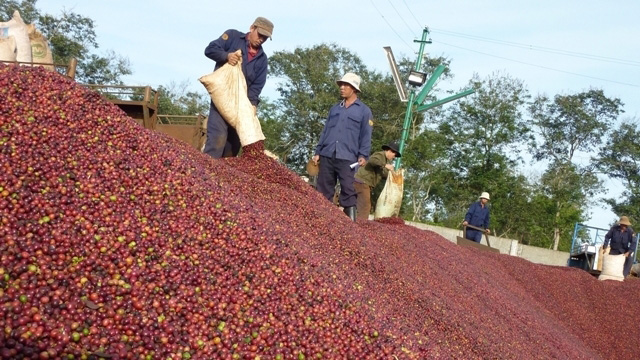


|
The
statement was made on November 11 at a press conference on the first
Vietnamese Coffee Day, scheduled to take place in the Central Highlands
resort city of Da Lat from December 9 until 11.
According
to Chairman of the Vietnam Coffee and Cocoa Association Luong Van Tu,
Vietnam’s coffee has seen remarkable growth in the last 30 years from
accounting for 1% of global output in 1991 to the current 20%.
However,
the sector has been significantly affected by climate change in recent years,
notably the drought in 2016, which was the worst in 30 years.
At the
same time the coffee growing area that needs replanting over the next five
years amounts to
Tu said
there is still much room for Vietnam’s coffee export growth as long as the
sector could secure enough loans for replanting and take measures to improve
coffee output and the quality of process products.
He added
that many of coffee plants in Vietnam have grown old after 30 years,
therefore the first priority should be cultivating a new generation of coffee
plants in order for Vietnam’s coffee exports to double to US$6 billion in the
next 15 years.
As part
of the celebrations of Vietnamese Coffee Day, a workshop will be held on a
new stage of development for Vietnam’s coffee sector, attracting delegates
from many coffee growing countries in the world.
There
will also be a space to display and introduce Vietnam’s famous coffee
products where visitors will be able to taste the country’s high-quality
coffee and learn about coffee processing in Lam Dong province.
|